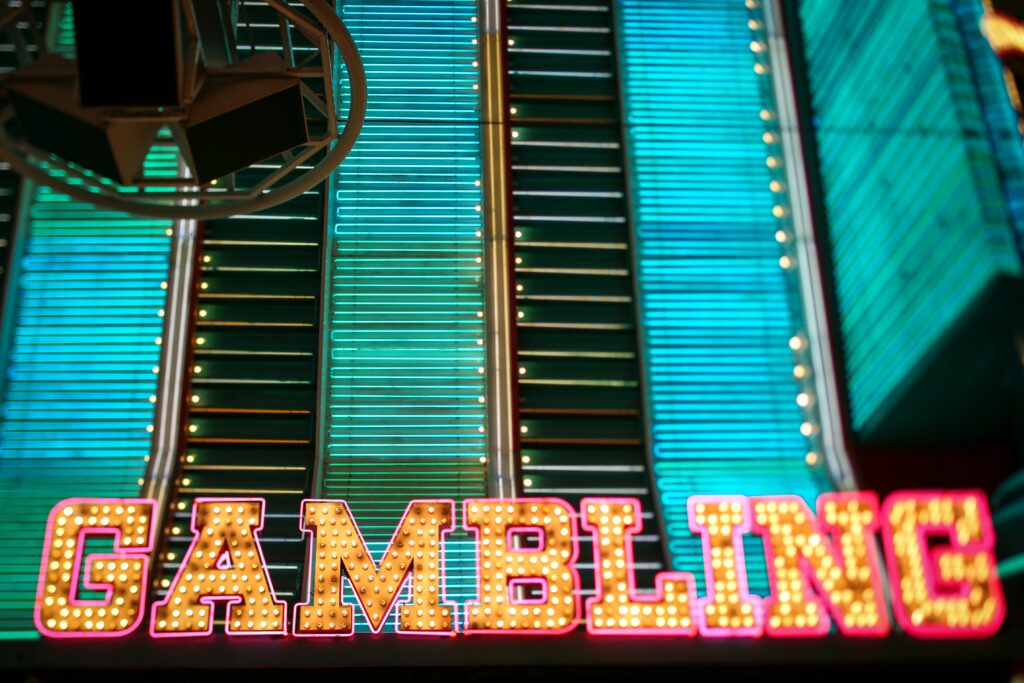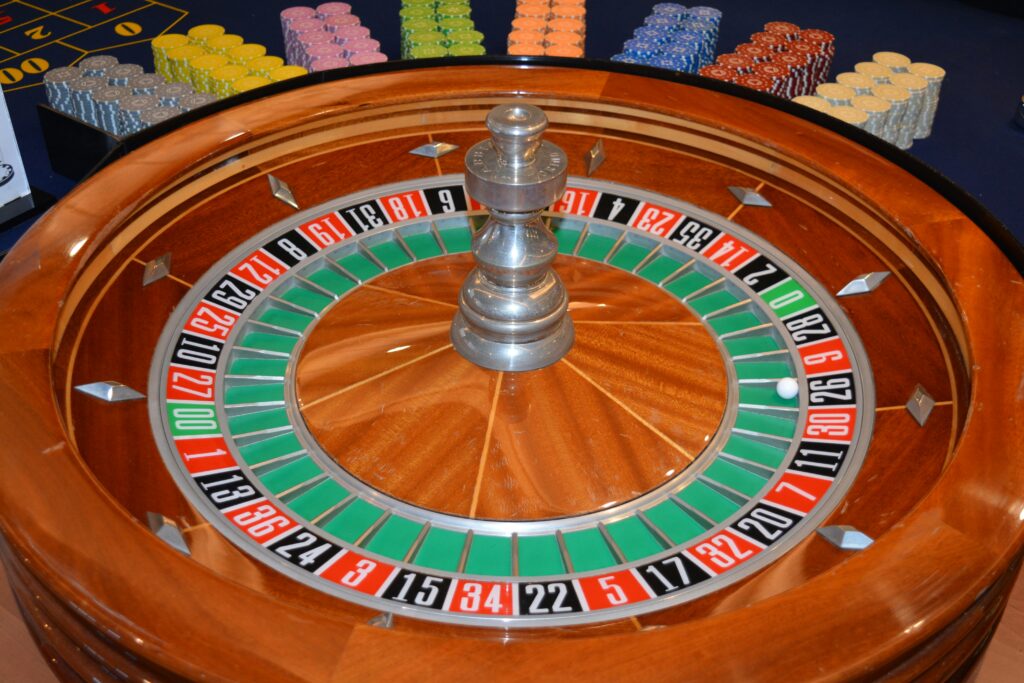Introduction: Why Self-Control Matters in Gambling
Gambling, by itself, isn’t the villain. At its core, it’s just a game—an experience built around chance, risk, and (sometimes) reward. Many people gamble casually, set limits, walk away when they’re done, and never see consequences. The problem starts when entertainment mutates into compulsion. That shift doesn’t happen overnight, but when it does, the losses stop being monetary—they become emotional, social, even physical.
Discipline is the real line in the sand. Without it, what began as fun can spiral into something unrecognizable. Spotting that line—between playing for enjoyment and playing to escape or chase losses—is key. Pretending that all gambling is bad misses the point. The real issue is when we try to dodge responsibility for the choices we make in the game.
That’s why we don’t start this conversation with blame or shame. Accountability matters more. It’s not about judging behavior—it’s about owning it. Because real control doesn’t start with someone else telling you to stop; it starts when you understand yourself well enough to know when and how to keep going without losing grip.
What Self-Control Actually Means
Self-control isn’t some lofty psychological theory. In real life, it’s the skill of pausing long enough to ask a question before you act. It’s choosing what you want most over what you want now. When it comes to gambling, that means being able to walk away when you’re ahead—or when you’re not.
At its core, self-control is about the tug-of-war between impulse and intention. Impulse wants the rush, the quick hit, the maybe-this-time win. Intention is about long-term choices. You don’t need to shut down your instincts entirely, but you do need to know who’s in charge at any given moment.
That’s where awareness comes in. Being aware of your patterns, your triggers, even your moods—that’s what gives you leverage. Without awareness, there’s no chance to interrupt a harmful cycle. With it, you can start recognizing the space between your urge to bet and your decision to go through with it. That space is where self-control lives.
Responsible gambling isn’t about being perfect. It’s about knowing yourself, and staying ahead of the curve before things go sideways.
The Psychology Behind Gambling Impulses
Gambling taps into deep, primitive parts of the brain—especially the reward system. A win triggers a flood of dopamine, the feel-good chemical that tells your brain something important just happened. It’s quick and intense. Losses, ironically, don’t shut that system down. Sometimes, they light it up too, especially when they’re close—the infamous near-miss. The brain reads these misses like they’re just-inches-from-winning moments. It’s misleading. And it can keep people chasing a feeling that doesn’t return the same way twice.
This is the heart of the variable rewards system. You don’t get a reward every time, and that randomness is part of the hook. It keeps people coming back, hoping the next spin, hand, or play is the big one. It’s the same logic behind slot machines and social media notifications: unpredictable wins create the strongest habits.
Some brains are more sensitive to this cycle. Genetics, personality traits, stress levels, and mental health all play a role. People dealing with anxiety, depression, or impulsivity are statistically more at risk. But it’s not about weakness—it’s about how individual setups react to the environment. Understanding this is the first step in managing it.
Strategies for Building Self-Control
Self-control doesn’t just happen. It’s practiced—daily, deliberately, and sometimes stubbornly. Start with limits. Set a firm cap on how much time, money, and mental energy you’re willing to invest in gambling. Put it in writing. Stick it somewhere visible. Then treat it like a non-negotiable budget.
Next, lean on the tools designed to help you hold the line. Apps now track session time and spending. Self-exclusion programs can lock you out when things go sideways. Reality checks, like timed reminders or spending limits built into the platform, can stop you from slipping into autopilot.
Create rules that actually suit your lifestyle and goals. Maybe that’s “I don’t gamble after 9 p.m.” or “I never put in more than 5% of my monthly allowance.” Keep them clear, simple, and enforceable. Write them down. Review them regularly. Honor them.
Finally, don’t discount the power of small habits. Logging out of a site after every session. Setting a timer. Tracking wins and losses manually, not just trusting the platform’s numbers. These details add up. They create friction in the best way—slowing you down just long enough to decide if the next bet is really worth it.
Discipline grows in the margins. Build your system before you need it.
Real-World Applications: What Works
Talk to anyone who’s gambled consistently without losing control, and you’ll hear one thing over and over: structure. It’s not about luck or superhuman willpower—it’s about clear boundaries and a plan. Controlled gamblers often treat gambling like going to the gym. Schedule it. Budget it. Track it. Then walk away.
Some lean on time-blocking: never gambling more than two hours at a time, or not betting after a certain hour of the day. Others stick to hard bankroll rules—once the money’s gone, that’s it. Zero top-ups. One bettor we spoke to has a rule called “Double-Pause”: if he doubles his money or loses half, he stops and doesn’t play again for a full week. That built-in delay helps break the cycle of emotional decisions.
Seasoned bettors also gamify their self-control. They turn discipline into a challenge—a score of its own. One guy uses a spreadsheet to log every session, and gets more satisfaction from seeing long-term profit curves than from single wins. For him, the real rush comes from beating his own worst instincts.
At the core, the people who are still standing years later aren’t just lucky. They’ve built a personal system with rules they respect—and they treat breaking those rules like a red flag, not a one-off.
What Happens Without It
Recognizing the Early Warning Signs
Self-control doesn’t vanish suddenly—it erodes gradually. Being aware of subtle behavioral changes can help prevent more serious consequences. Some common early indicators include:
- Spending more time gambling than intended
- Frequently exceeding financial limits
- Feeling anxious, irritable, or restless when not gambling
- Hiding gambling activities from family or friends
The Slippery Slope: From Losses to Life Impact
One of the most common traps is what’s known as “chasing losses.” This is when a person continues gambling in an attempt to win back money they’ve lost—often leading to even greater losses. From there, it can spiral:
- Financial instability or debt
- Strained or broken relationships with loved ones
- Loss of interest in work, hobbies, or social activities
- Emotional distress such as guilt, anxiety, or depression
When It’s Time to Seek Help
If gambling stops feeling fun and starts to feel like a burden, it’s time to take action. Reaching out isn’t a sign of weakness—it’s a proactive step toward regaining control.
You should consider seeking help if:
- You’ve tried to cut back but can’t
- Gambling is causing problems at work, home, or socially
- You’re borrowing money or selling personal items to gamble
- You feel hopeless or ashamed about your gambling behavior
Where to Turn for Support
Help is more accessible than ever. A combination of digital tools and human connection can offer real support and relief:
- Self-exclusion programs through casinos and betting platforms
- Counseling services specializing in gambling addiction
- Apps that track habits and restrict access to gambling websites
- Peer-support groups like Gamblers Anonymous
You can explore more tools and resources at Bet Vlog Hub.
The earlier you act, the easier it is to make lasting changes. Remember, seeking help is a smart move—not a failure.
Gambling with a Long-Term Mindset
Gambling can be exhilarating, but without a long-term mindset, it’s easy to let emotions take the wheel. Developing a sustainable approach to gambling means staying grounded in logic, recognizing risk, and treating the activity for what it is—entertainment.
Emotion vs. Logic: Stay Centered Over Time
Impulse-driven decisions are at the root of most gambling regrets. Long-term gamblers who maintain control think in terms of probabilities—not possibilities—and avoid chasing short-term highs.
- Pause before reacting to wins or losses
- Recognize emotional cues that lead to impulsive betting
- Practice mindfulness: awareness helps reduce reactive behavior
Entertainment, Not Income
One of the most damaging misconceptions is treating gambling as a source of income. Unlike work or investment, gambling never guarantees returns. Successful gamblers approach it with the same mindset they bring to going to a movie or concert—fun, but with a cost in mind.
- Set a budget you’re willing to lose
- Avoid trying to “win back” lost money
- Keep your main income and savings completely separate
Evaluate Risk Before Excitement
The thrill of placing a bet can sometimes drown out basic risk assessment. Thinking long-term means considering the odds, not just the potential payoff. High-risk bets might feel exciting, but consistently taking them can drain your bankroll and enthusiasm.
- Learn the odds before betting
- Stick to games or bets you understand
- Ask: What am I risking—and why?
A long-term mindset puts you in control. It turns gambling into a leisure activity, not a dangerous gamble on your future.
Conclusion: Balance Over Restriction
The goal isn’t to shut it all down. It’s to know when to hit the brakes, when to swerve, and when to drive straight through. Self-control in gambling isn’t about turning the engine off—it’s about keeping your hands on the wheel.
Playing smart means staying aware. Enjoy the rush, the strategy, even the unpredictability. But never lose sight of who’s in control. Make your choices, set your limits, and resist the urge to hand over the driver’s seat to a losing streak or a moment of impulse.
And here’s the bottom line: self-control isn’t about grit or willpower alone. It’s a system. A strategy. Use it well, and the game stays in its place—as entertainment, not a liability.


 As both a co-founder and key contributor at BetVlogHub. Auritha drives the platform’s vision of blending betting insights with cutting-edge technology. Her work focuses on innovation, user experience, and building resources that empower readers to make smarter betting decisions.
As both a co-founder and key contributor at BetVlogHub. Auritha drives the platform’s vision of blending betting insights with cutting-edge technology. Her work focuses on innovation, user experience, and building resources that empower readers to make smarter betting decisions.

